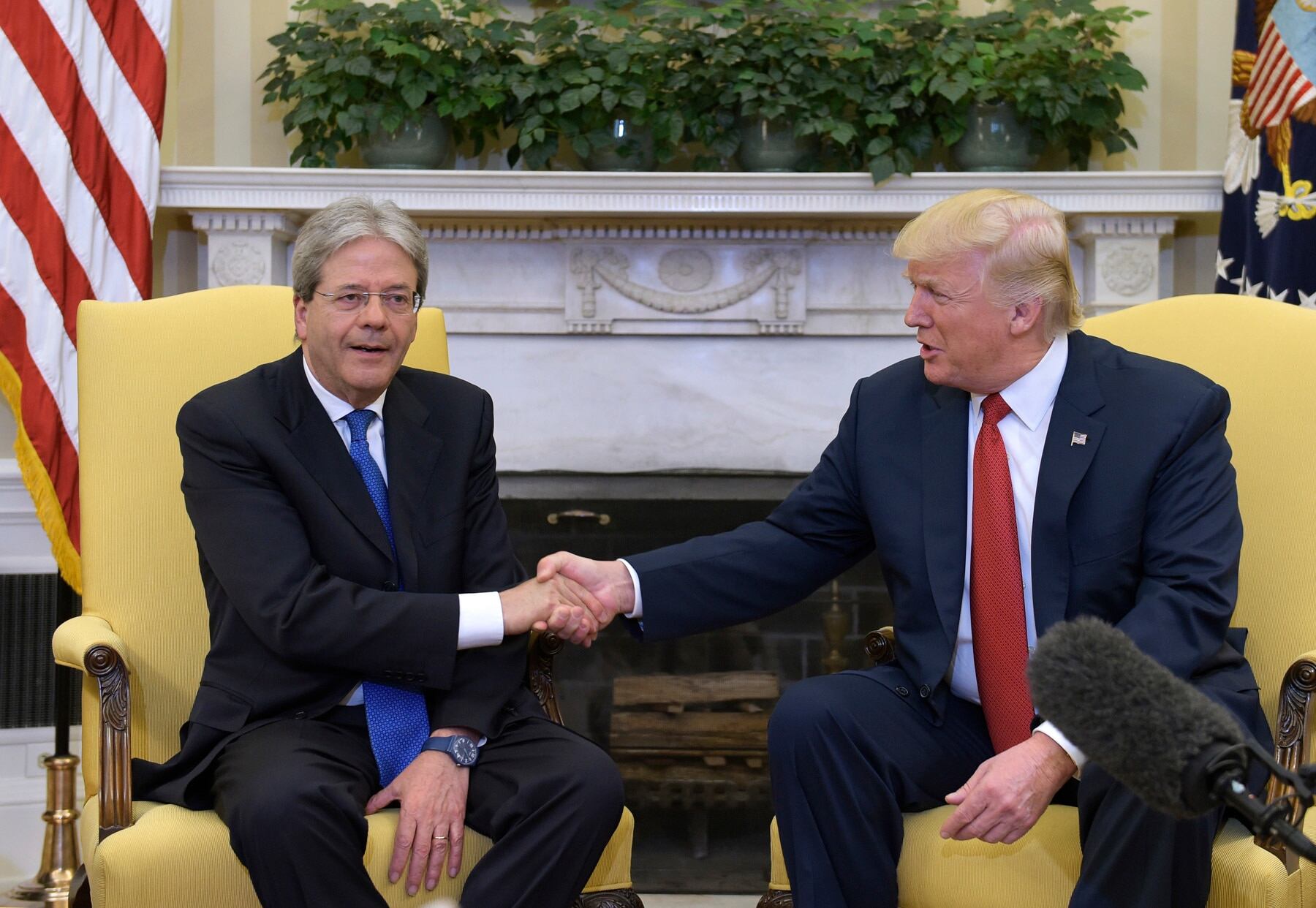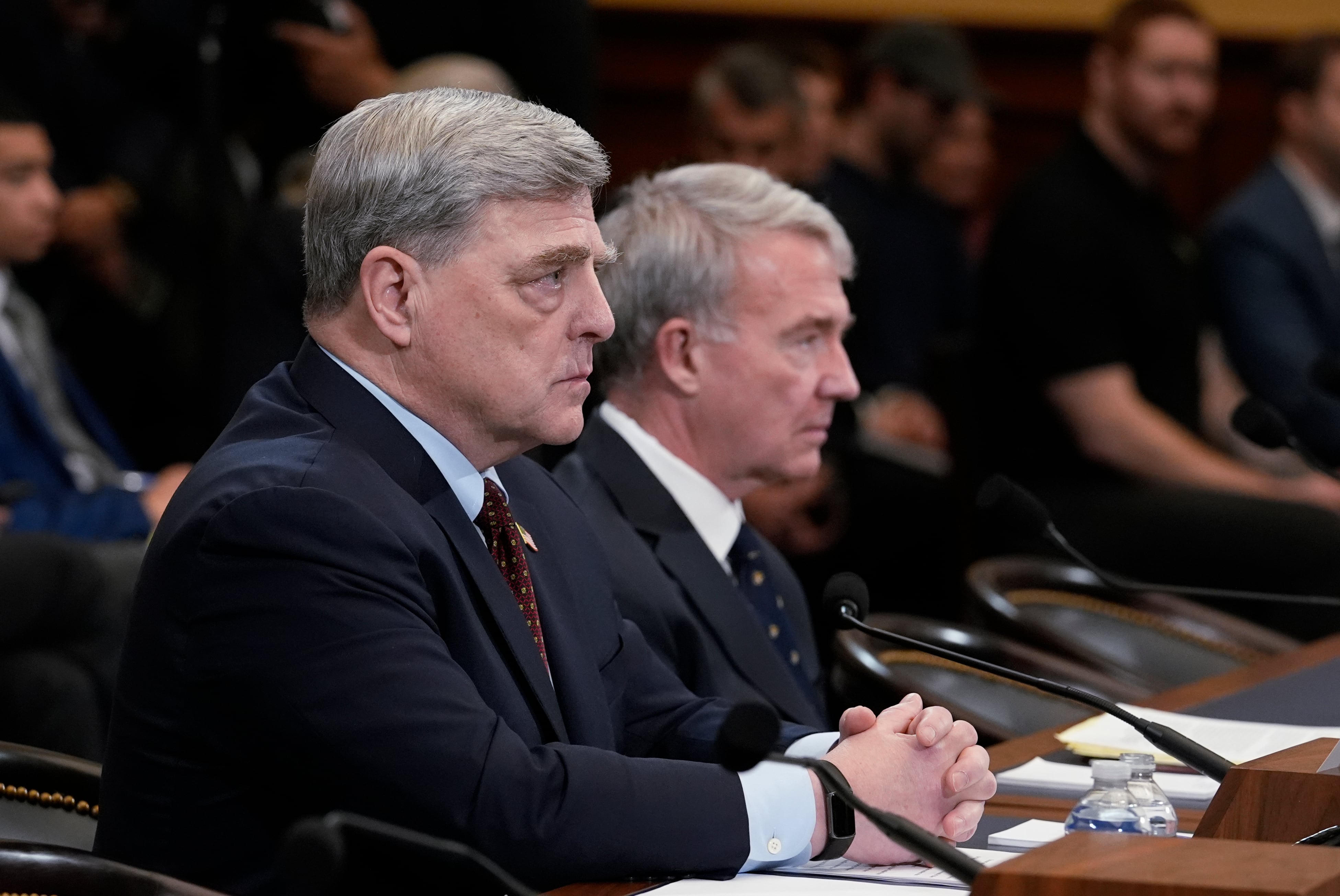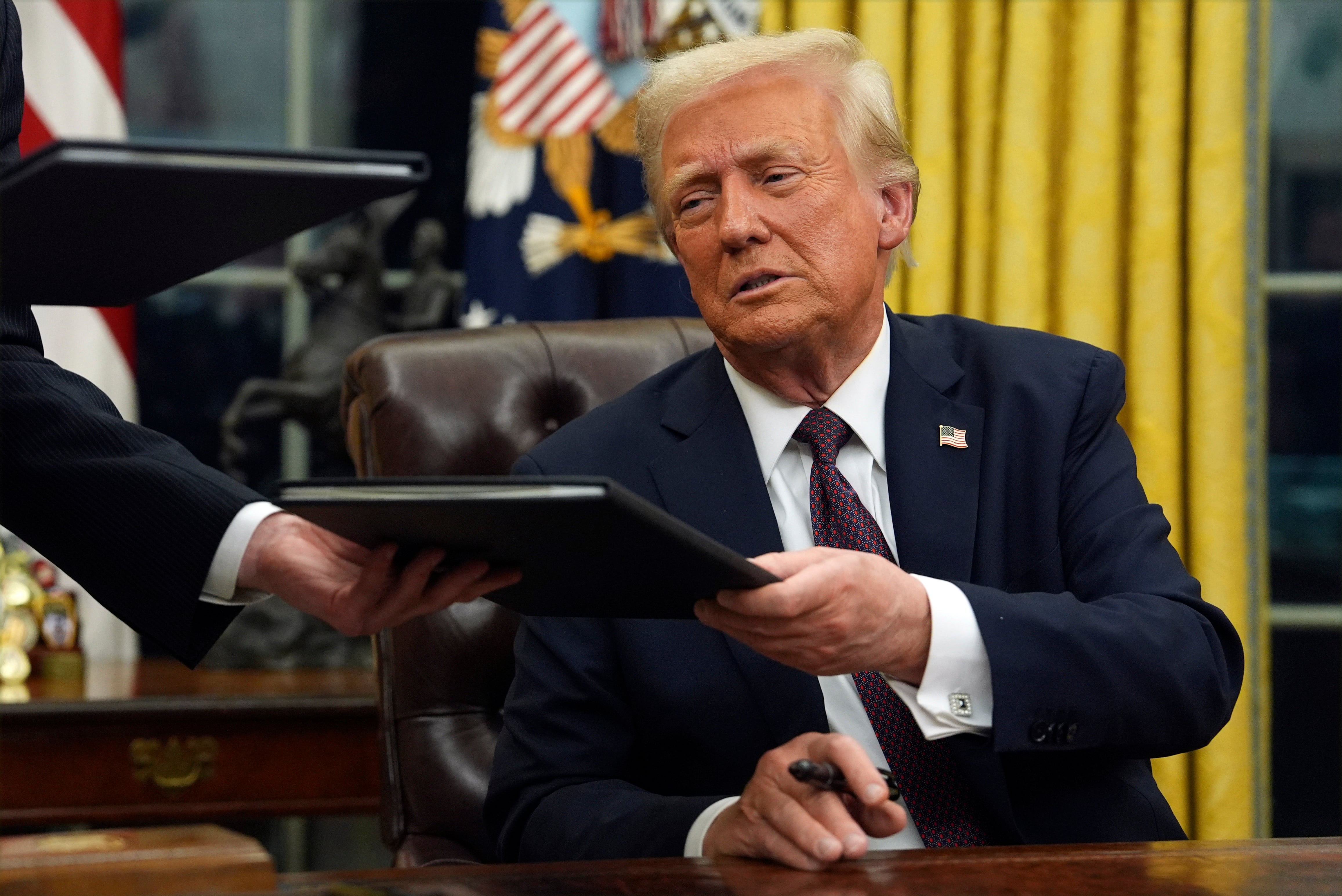WASHINGTON — Weeks before President Trump's first official overseas trip, trade and security matters were top items of discussion in his meeting Thursday with the prime minister of Italy, one of the two European countries set to welcome Trump in May.
Standing alongside Italian premier Paolo Gentiloni, Trump praised Italy's contributions to the wars in Iraq and Afghanistan. He commended its efforts toward seeking stability in Libya. He also hailed the country's contributions to art and music, touting the late opera legend Luciano Pavarotti as "a great friend."
But Trump remained steadfast on his demands that European allies meet their financial obligations in their partnerships with the U.S. He urged Italy to address the refugee crisis through a policy that "seeks the eventual return of refugees to their home countries so they can help to rebuild their own nations."
Gentiloni, who has been Italy's premier since December, stressed the need for burden-sharing in the refugee crisis, given Italy's proximity to Libya, where large numbers of migrants take the risky voyage across the Mediterranean to reach Europe.
Trump was quick to dismiss the notion that the U.S. would get involved in Libya, saying, "I do not see a role in Libya."
"We have enough roles. We have a role everywhere," Trump said.
The Group of Seven major industrialized nations recently joined in urging Russia to pressure the Syrian government to end the civil war. They have blamed Syrian President Bashar Assad's military for a recent chemical attack that killed more than 80 people. The attack prompted Trump to launch missile strikes on a Syrian airfield.
Gentiloni noted the Italy and America's "common commitment against terrorism," which he said requires social and economic collaboration with Muslim communities in order to be effective.

President Donald Trump, right, shakes hands as he meets with Italian Prime Minister Paolo Gentiloni, left, in the Oval Office of the White House in Washington, Thursday, April 20, 2017.
Photo Credit: Susan Walsh/AP
With Italy set to host a G-7 summit next month, Gentiloni can shape the agenda on behalf of other European leaders wary of Trump's position on some long-standing agreements.
Gentiloni has strongly criticized protectionist trade policies, such as those proposed by Trump's administration, that advocate shielding a country's domestic industries from foreign competition by taxing imports.
Trump has pulled the United States out of the Trans-Pacific Partnership, a pact he said was "a disaster." In addition, he said this week he would make "some very big changes" to the North American Free Trade Agreement with Canada and Mexico or "we are going to get rid of NAFTA for once and for all."
Trump favors bilateral trade deals and has used trade as a tool for pressuring countries to do more on national security matters. That was evident most recently with his public statements promising China a "better" trade arrangement if Beijing cracks down on North Korea.
Italy has suffered sluggish economic growth and was a staunch backer of a proposed U.S.-European free trade agreement negotiated by the Obama administration.
Trump plans to attend a NATO meeting in Belgium next month before the G-7 gathering in Italy. Much is uncertain in Europe, with Britain's decision to leave the European Union and the upcoming French presidential election — the first round of voting is Sunday.
Like Trump, anti-establishment French populist Marine Le Pen hopes for an electoral boost by seizing on voter disenchantment with politics as usual. The EU has been a constant target, and Le Pen has called for a referendum similar to last year's Brexit vote.
The G-7 comprises the U.S., Germany, France, Britain, Canada, Japan and Italy.
Italy is also a member of NATO, the military alliance to which Trump says the U.S. contributes more than it receives.
Trump has called for all countries in the alliance to adhere to a threshold of contributing 2 percent of their gross domestic product to NATO. Italy's contribution is less than 1 percent.
Gentiloni said that despite budgetary limitations, "the commitment has been made" to meet the target.
"We are used to respecting our commitments," he said.





